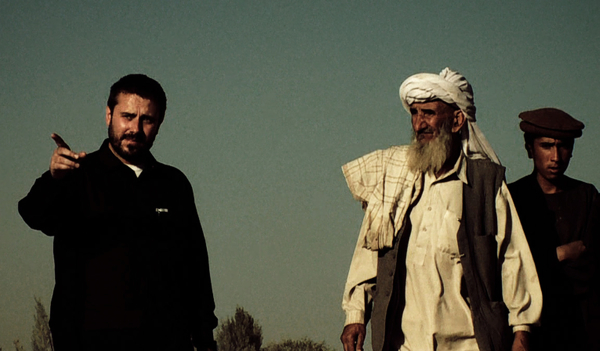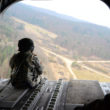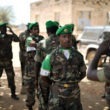Dirty Wars, the film, opens in select theaters around the country this weekend. The producers—hostage to the same merciless economics that confront commercial releases—have gone to extra lengths to entice audiences to the theaters during the first weekend. In New York, the co-writer and star of the film—Jeremy Scahill (pictured left), on whose New York Times bestselling book of the same title the film is based—will be at the IFC (formerly the Waverly Theater in the West Village on Sixth Avenue) on Friday night, as will Cornel West who is scheduled to participate in a Q-and-A at the 6:25 p.m. screening that evening, and Chris Hayes, The Nation’s Editor-at-large and member of MSNBC’s all-star lineup, will discuss the film following the 6:25 p.m. screening on Saturday. Rick Rowley—Jeremy’s partner, fellow un-embedded Iraq and Afghanistan theater journalist and director of the film—will be at the Landmark in Los Angeles all weekend joined by a roster of special guest speakers.
| In the film Dirty Wars, journalist Jeremy Scahill looks at the underpinnings of perpetual war. |
So what is all the fuss about? Scahill, you’ll recall, gave us Blackwater, and from the perspective of this writer that book and his reporting in The Nation on Iraq at the time (2003-2008) did as much if not more to change the narrative on the Iraq War as any single event or chronicle. The mainstream media finally gave up on “spreading peace and democracy” the day Blackwater mercenaries opened fire on Iraqi civilians in Nisoor Square, at the edge of Baghdad, and turned instead to Scahill’s exhaustively framed critique of a privatized, morally bankrupt intervention imposed on the region and the rest of the world by discredited American political leadership. Very tough stuff.
In Dirty Wars, Scahill expands the scope of his inquiry to the underpinnings of perpetual war, in particular the growing American practice of murdering perceived adversaries on foreign soil in addition to portions of various civilian populations who have the misfortune to be eating dinner nearby or driving to work or dancing in the privacy of their homes. Still in the shadow of 9/11, mindful of public intolerance for American casualties, chastened by the numbing waste of the all-in war in Iraq, and emboldened by the technological wizardry of unmanned aerial vehicles, American strategists have evolved a doctrine and a supporting legal framework to eliminate declared enemies. Along the way, as this uncompromising and shattering film reveals, we’ve killed a few American and a lot of foreign citizens with impunity, and with more to come.
Scahill is not suggesting our enemies are not real or that they are not dangerous or even that they are not in many instances as insane as some of our allies, as in the case of the Somali warlords on the U.S. payroll. But through his writing and in this unsentimental film he asks us to consider the implications of these policies and their collateral consequences to the foundational principles of the Constitution and to our Republic.
To participate in this essential conversation, check your local listings to see if Dirty Wars is playing this weekend in a theater near you.
Hamilton Fish is the publisher ofThe Washington Spectator.







0 Comments